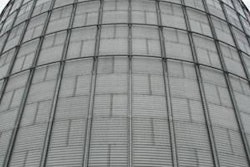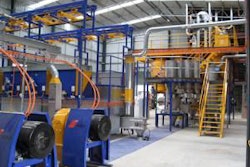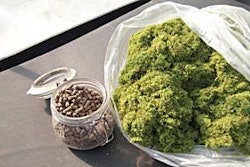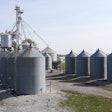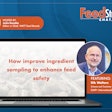I’m sure the current administration in Washington is sweating the high gas prices, and I would not be surprised if the president releases oil from the Strategic Petroleum Reserve in hopes of lowering prices before the election. However, the Republicans would howl—and rightly so.
So, what has caused these ups and downs in recent years in both gasoline and grain prices? My business friends say it’s primarily speculative trading in the marketplace, which increases as the economy gets better. Gasoline refiners say there is plenty of gasoline in the market.
You may not be aware that most—if not all—of next year’s wheat crop has been bought through a system created for farmers and grain merchants to hedge their risks—a reasonable, necessary and expected process. But when there’s quick money to be made, there’s a rush of money from sources unknown, but generally controlled by large banking houses on Wall Street.
These sources buy up the contract for these commodities, literally driving up the prices in a short time period. They never take delivery, and the marketplace pays dearly.
Loophole
So, is corn destined to have a base of $5 per bushel for the future? Is gasoline destined to sell above $4 a gallon as well? Many in our industry believe the Commodities Futures Trading Commission has been given the rulemaking authority from Congress to change this situation by closing a loophole Congress opened in 2000. This loophole allows large commercial investors to participate in speculative trading without any limits on the amount of commodities that can be purchased on a speculative basis.
Some say such trading drives up grain and food prices worldwide and takes food from the mouths of starving children. Is this true?
The Dodd-Frank Act (or officially, the Dodd-Frank Wall Street Reform & Consumer Protection Act) requires the Commodity Futures Trading Commission to engage in a number of rulemakings to reform this practice, as well as conduct studies and develop reports. In fact, the Commodity Futures Trading Commission is charged with writing 243 rules, conducting 67 studies and preparing 22 periodic reports in a relatively short time frame. These are herculean tasks brought on by a herculean financial crisis.
Definition of “traders”
The speculative position limits rule in the above situation has been finalized, but the definition of “traders” has not. Those definitions are the ones limiting to which firms these limits will apply in this market. The definition of trader should be narrowed to return trading to those for which this system was created.
There’s a great deal riding on these definitions, including hundreds of billions of investment dollars from faraway places.
Most industries will be affected because of the impact of fuel prices on nearly every segment of American industry, including the gas you put in your own vehicle, not to mention the food you put on your family’s plate.
We need to participate in this process, making sure the Commodities Futures Trading Commission does the right thing for our industry, the American people and the world.
As for gasoline prices, I hope President Obama does release oil from the Strategic Petroleum Reserve—just to make the election more entertaining. Get ready to shake your Etch-A-Sketch.



